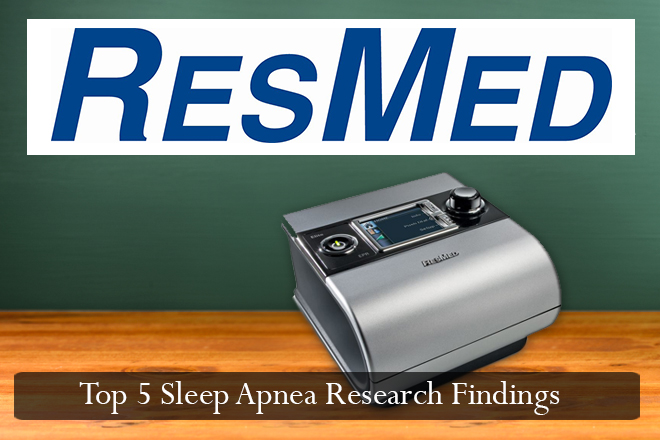For a long time, nobody really knew what the long-term affects of sleep apnea’s ravages were. In fact, nobody really knew what the sleep disorder was until about three decades ago – the age of Tab and Reaganomics – so there wasn’t any solid foundation for controlled longitudinal tests. However, during the last year, or so, we saw the conclusion of many landmark studies proving that untreated obstructive sleep apnea wreaks more havoc than anyone ever imagined. Just recently, ResMed – one of the main industry leaders for CPAP related devices and sleep apnea solutions – released a greatest hits compilation consisting of five of those groundbreaking studies.
1. Obstructive Sleep Apnea Linked to Higher Incidences of Cancer
Obstructive sleep apnea causes the sufferer to suddenly stop breathing while sleeping. These breathless, gasping moments can occur hundreds of times per night. Next to the fight or flight state your body kicks into, which can have its own set of problems, these cessations in breath – otherwise known as apneas – cause your body to become starved of oxygen. This can cause low oxygen saturation in your blood stream, which is recognized in the medical field as a condition called hypoxia. This study showed that patients under the age of 65 who suffered from long-term occurrences of hypoxic events – as a result of sleep apnea – were met with a higher probability for being diagnosed with cancer. In so many words, there is an unequivocal link between sleep apnea and cancer – a scary prospect indeed. [study link]
2. Sleep Apnea Increases Risk of Dying From a Sudden Heart Attack
Not getting enough oxygen can be ruinous to our body’s basic and essential functions – our cells literally mutate as a result. And any mutation in one of our major organs can lead to systemic failure. A longitudinal study – which looked at over ten thousand patients – showed that people with obstructive sleep apnea are at a far greater risk of dying from sudden cardiac failure or heart attack. Just imagine being at work and keeling over right there at your desk – if you have sleep apnea, it could happen to you. [study link]
3. Untreated Sleep Apnea Slows Down Recovery After Heart Attack
A myocardial infarction is the medical field’s fancy name for ‘heart attack.’ If you’ve suffered from one and you are still reading this, you’ve basically gotten a second lease on life (or you’re a ghost). However, if you have sleep apnea and aren’t being treated, recovery from a heart attack may be much slower. A study was released last year that showed untreated sleep apnea could impede the healing process after sustaining a myocardial infarction. Moreover, untreated sleep apnea can make the damage sustained during a heart attack much more severe, which is another reason why it can take so long to recover. What’s the take away from this study? – Get treated today if you are showing any signs of sleep apnea. [study link]
4. CPAP Treatment for Sleep Apnea Can Reduce Blood Pressure
High blood pressure is like the first domino in a long line of potentially catastrophic and life-threatening events, like heart attack, stroke and brain damage. Plus, if you don’t do something about it, high blood pressure will keep causing more and more damage. A study released last year proved that CPAP therapy to treat obstructive sleep apnea could actually bring your blood pressure down to more equalized diastolic and systolic levels. There is a good chance that your brain, heart, and other essential organs mean a lot to you – don’t you think you owe to yourself to start thinking about CPAP treatment? [study link]
5. Sleep Apnea is Rising in Both Males and Female Cohorts
As we learn more and more about obstructive sleep apnea, we are also learning that more and more people suffer from it. In fact, if you are sitting in room with four people, you can pretty much bet that one of those people has sleep apnea. The scariest part is that person may be you. The original guestimate that experts had was that 9% of men and 4% of women suffered from sleep apnea. The new numbers are a little more striking: 13% of men and 6% of women. This increased prevalence means that getting tested for sleep apnea is more important than ever. [study link]
In the end, all this seemingly bad news actually comes with good news (sometimes it can be nice to hear the bad news first). The good news is that there is help – CPAP, or continuous positive airway pressure, treatment can have near curative results from the suffering of obstructive sleep apnea. These studies – showing an increase rate of mortality as a result from high blood pressure, heart attack, stroke, and cancer – are merely a wake up call. If you want to live more healthily, sleep more soundly and increase your life span, you want to get diagnosed for sleep apnea today, because – statistically speaking – there may not be a tomorrow.











